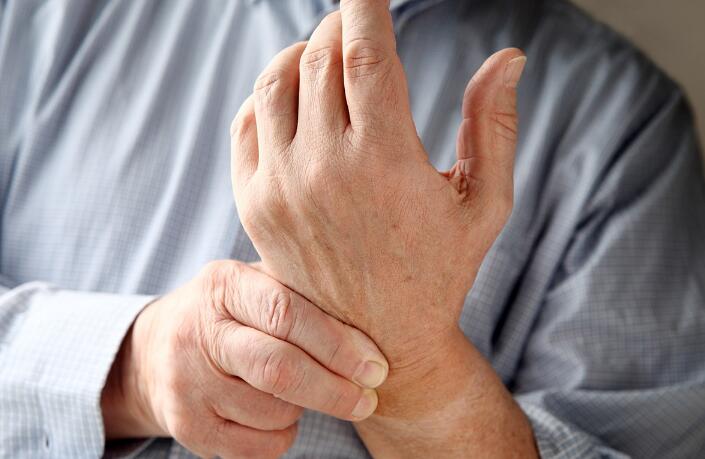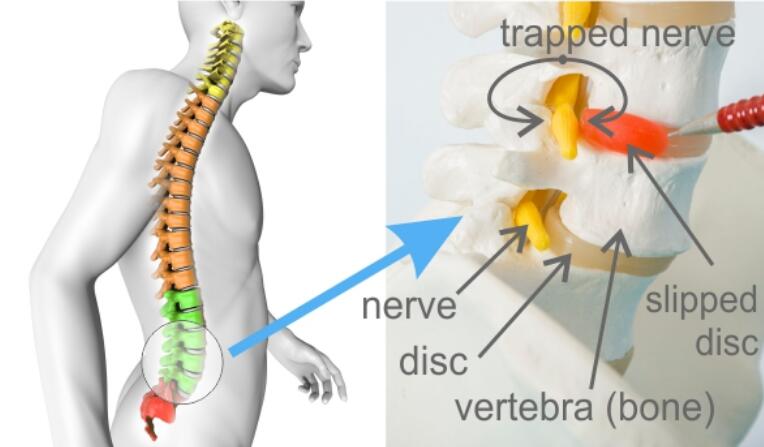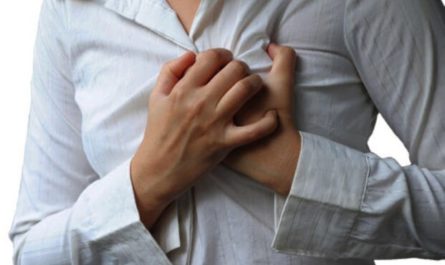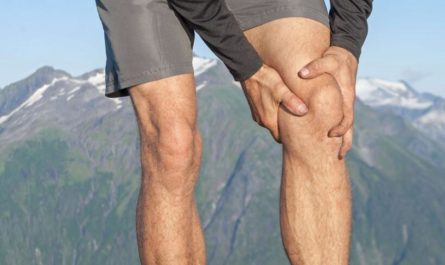Pins and needles in the hands are a common sensation that many people experience at some point in their lives. It is characterized by tingling, prickling, or numbness in the hands and fingers. While it is often temporary and harmless, In some other cases, it can be severe and chronic, denoting a more serious condition. This article will discuss 15 potential causes of pins and needles sensation in your hands. This may help you identify the underlying causes.
What are Pins and Needles in Hands
The feeling of Pins and Needles in Hands or Feet is medically known as paraesthesia. It happens when the nerves in an area of the body are compressed or damaged, so they can’t send signals properly. It can also be described as a “falling asleep” sensation or numbness. This sensation is often caused by pressure on nerves, poor blood circulation, or nerve damage.
The symptoms of pins and needles in hands or feet include a burning or prickling sensation, numbness, and weakness. These sensations can last for several minutes or can persist for a few hours. It can be painful, uncomfortable, and even debilitating.

15 Common Causes of Pins and Needles in Hands
1. Diabetes
Diabetes is one of the most common causes of pins and needles in the fingers. This condition happens when the blood has excessive glucose. This will cause peripheral neuropathy, which is a complication that occurs in diabetes.
This condition may damage the small blood vessels and nerves in the hands and feet when nerves in the feet or hands can not be supplied with essential nutrients and blood.
The feeling of pain or numbness, pins, and needles will occur in the fingers and toes. Sometimes, the tingling feeling starting from the hand will move up towards the arms.
The study found two-thirds of all people with diabetes suffer from some form of neuropathy. When the condition is serious, the patient may feel anything in their hands and feet. This is dangerous, as you may drop things or stumble. Sometimes you may not realize when you are touching something hot.
2. Injury
Some injuries, like a fractured bone, can damage nerve endings in fingers or toes, resulting in tingling of extremities. Nerve damage may occur in some people who often use vibrating tools.
3. Peripheral neuropathy
Peripheral neuropathy is a common condition. It is estimated that more than 20 million Americans, especially the elderly, suffer from peripheral neuropathy. This condition can affect nerves distant from the brain and spinal cord, like hands and feet. Over time, it can lead to a loss of mobility and even disability.
4. Trapped Nerves

Trapped Nerves caused by a slipped disc or trapped nerve in the neck can cause numbness, pins, or needles in fingers. This feeling can also appear from your neck, down your arms, and feet.
Carpal tunnel syndrome refers to the condition of a trapped nerve at the wrist. This is one of the most common conditions that affect the upper limb. Carpal tunnel syndrome will lead to irritation, pain, pins, and needles in the hand, and loss of grip.
5. Diseases that damage nerves
Some diseases can damage the nervous system in the body. This will cause numbness, pins, needles, and tingling sensations in the hands.
These diseases include liver conditions, hypothyroidism, kidney disorders, blood diseases, connective tissue conditions, hormonal imbalances, stroke, multiple sclerosis, and brain tumors. However, these severe diseases occur less frequently and are often accompanied by other symptoms.
6. Vitamin deficiency
Nerves in the body require a certain amount of nutrients to work properly. Vitamin deficiency can cause anemia, damage nerves, and lead to paresthesia.
Niacin and Vitamins B6, B12, E, and B1 are essential for your nerve health. Vitamin B12 and Vitamin B6 deficiency can lead to anemia and nerve damage, an important cause of peripheral neuropathy.
This condition is common among vegans, older people, and people with pernicious anemia. However, too much B6 is also not good, as it can cause tingling in the hands and feet.
7. Alcoholism

People who abuse alcohol regularly are more likely to have poor dietary habits and vitamin deficiencies. Too little vitamin E and B vitamins (such as B12) can cause anemia, which can cause peripheral neuropathy.
This will lead to peripheral neuropathy that can cause tingling in the hands and feet. In addition, long-term alcohol misuse can lead to high levels of alcohol in the bloodstream and alcoholism. This condition can also damage the nerves in the body.
8. Medication use
Some medicines may damage nerves and cause a tingling sensation in your hands or feet. This is usually a side effect of drugs that treat HIV/AIDS, breast cancer, and lymphoma.
Some other medications that may cause tingling in the hands and feet include anticonvulsants, anti-infection drugs, and heart or blood pressure drugs.
Ensure to consult a doctor before taking these medicines, such as amiodarone, hydralazine, metronidazole, dapsone, metronidazole, and dapsone.
9. Toxins

Some toxins and chemicals, such as mercury, lead, arsenic, and thallium, harm your nervous system. Exposure to these toxins can lead to tingling in your hands or feet.
Some common industrial and environmental chemicals include heavy metals, acrylamide, ethylene glycol, and hexacarbonyl.
10. Rheumatoid arthritis
Rheumatoid arthritis is an autoimmune disease. This condition occurs when your immune system attacks your body’s cells instead of foreign invaders by mistake. Rheumatoid arthritis often occurs in the wrists, hands, ankles, and feet. The inflammation can damage the nerves and lead to tingling in the joints.
11. Cervical spondylosis
Cervical spondylosis usually occurs when age-related wear affects the spinal disks in your neck. This may pressure the spinal cord and lead to tingling or numbness in your arms and legs. Cervical spondylosis is so common that more than 60% of people over 60 will be affected by cervical spondylosis.
12. Pinched nerve

A pinched nerve occurs when there’s too much pressure on a nerve from the surrounding tissues, such as muscles, tendons, bones, or cartilage. Some conditions like inflammation, injury, and repetitive movements are the most common causes of a pinched nerve.
This pressure will affect the nerve’s function and cause tingling, numbness, weakness, and pain in your body. These sensations may also radiate down your leg and into your foot when a pinched nerve occurs in your lower spine. Likewise, you may feel pain and numbness in your hands when a pinched nerve occurs in your wrist.
13. Carpal tunnel syndrome
Carpal tunnel syndrome is a medical condition caused by compression of the median nerve in the wrist at the carpal tunnel. Repetitive motions, injury, or inflammatory conditions are the common causes.
Carpal tunnel syndrome can cause tingling, numbness, pain, and pins and needles in the fingers. You may feel numbness and tingling in the first four fingers of your hand.
Sometimes, you can also suffer from the symptoms in the forearm or arm. Pain, numbness, and tingling usually come on gradually over weeks.
14. Pregnancy
Many pregnant women suffer from numbness in their hands and feet during pregnancy. This is caused by the gradual enlargement of the fetus or the swelling of the maternal body pressing the nerves. These symptoms usually disappear automatically after birth.
15. Infections
An infection occurs when another organism invades your body and causes disease. Types of infection include fungal, viral, protozoan, bacterial, and parasitic.
Lyme disease
Lyme disease is a bacterial infection transmitted to humans through the bite of an infected tick. This condition is caused by the bacterium Borrelia burgdorferi. The infection can affect the nervous system and lead to your hands and feet tingling.
Shingles
Shingle is a viral infection caused by the reactivation of the varicella-zoster virus. This condition can cause a painful rash, tingling, or numbness in the affected area. Although shingles can occur anywhere, it usually affects a small part of one side of your body, such as your hands, arms, legs, and feet.
Hepatitis B and C
Hepatitis B and C are caused by viruses that can progress to a “chronic” or lifelong infection. This will lead to liver inflammation, cirrhosis, or even liver cancer. In addition, an infection may also cause other health problems, such as peripheral neuropathy. This will result in numbness and tingling in your hands or feet.
AIDS or HIV
AIDS or HIV is a chronic, life-threatening disease caused by the human immunodeficiency virus. HIV can damage your immune system and nervous system. This will cause tingling, numbness, and pain in the hands and feet. If left untreated, it can increase the risk of acquiring cancer.
Leprosy
Leprosy, also called Hansen disease, is a bacterial infection caused by the leprosy bacillus. This condition can affect the peripheral nerves, skin, respiratory tract, and mucous membranes of the nose, throat, and eyes. When the infection damages the skin’s peripheral nervous system, you can feel a tingling or numbness in the hands or feet.
Other Possible Causes of Pins and Needles in Fingers or Feet
There are other possible causes of Pins and Needles in hands or feet.
- Pregnancy
- Multiple sclerosis
- Lupus
- Celiac disease
- Hypothyroidism
- Fibromyalgia
- Ganglion cyst
- Raynaud’s phenomenon
- Vasculitis
- Guillain-Barre syndrome
- Charcot-Marie-Tooth disease (CMT)
How to Relieve Pins and Needles in Hands
1. Shake and move your hands
Shaking and moving your hands helps to increase blood circulation and reduce the sensation of pins and needles. You can gently shake your hands by holding them out in front of you and rapidly flicking your fingers. Moving your fingers individually and in a coordinated manner also helps to improve blood flow.
2. Stretching exercises
Stretching exercises for the hands and fingers can help relieve tension and improve circulation. Try flexing and extending your fingers, making a fist and then opening your hand fully, and rotating your wrists in circular motions. These exercises can be done several times a day to keep your hands and fingers flexible.
3. Massage
Massaging your hands and fingers can stimulate blood flow and relieve any muscle tension that may be contributing to pins and needles.
Use your other hand to gently massage the affected area in circular motions, applying light pressure. You can also use a foam roller or tennis ball to roll over your hands and fingers, applying gentle pressure to release tension.
4. Take breaks and change positions
If your pins and needles are caused by repetitive activities such as typing or using a computer mouse, it’s important to take regular breaks and change positions.
Prolonged pressure on the nerves can lead to discomfort. Take short breaks every 30 minutes to stretch and move your hands. Additionally, try adjusting your posture and wrist position to reduce strain on the nerves.
5. Improve posture
Poor posture can contribute to nerve compression and decreased blood flow to the hands. Maintain good posture while sitting or standing by keeping your back straight, shoulders relaxed, and wrists in a neutral position. Avoid hunching forward or slouching, as this can put additional pressure on the nerves.
6. Apply heat or cold therapy
Heat and cold therapy can help alleviate pins and needles depending on the underlying cause. Applying heat, such as using warm water baths or heat packs, can relax muscles and improve blood flow.
Cold packs or ice can help reduce inflammation and numb the area. Experiment with both heat and cold to see which provides more relief for your specific situation.
7. Check your ergonomics
Proper ergonomics is crucial to reduce strain on your hands and wrists. Ensure that your workspace is set up ergonomically.
Adjust your chair height so that your feet are flat on the floor, position your keyboard at a height where your wrists can remain straight, and use a mouse that fits comfortably in your hand. Ergonomic equipment, such as wrist rests and ergonomic keyboards, can also provide additional support.
8. Avoid tight clothing or accessories
Tight clothing or accessories, such as wristbands or bracelets, can restrict blood flow and contribute to pins and needles. Opt for loose-fitting garments and avoid wearing tight accessories for extended periods. This allows for better circulation and reduces pressure on the nerves.
9. Practice relaxation techniques
Stress and anxiety can exacerbate pins and needles symptoms. Engaging in relaxation techniques, such as deep breathing exercises, meditation, or yoga, can help reduce stress levels and promote overall well-being. These techniques can help relax muscles and improve blood flow, reducing the frequency and intensity of pins and needles.
When to See Your Doctor?
If you experience persistent or recurring pins and needles in your hands, it is important to consult a healthcare professional. Additionally, you should seek medical attention if the pins and needles are accompanied by other symptoms such as weakness, numbness, pain, or difficulty performing daily activities. These could be signs of an underlying condition that requires further evaluation and treatment.






